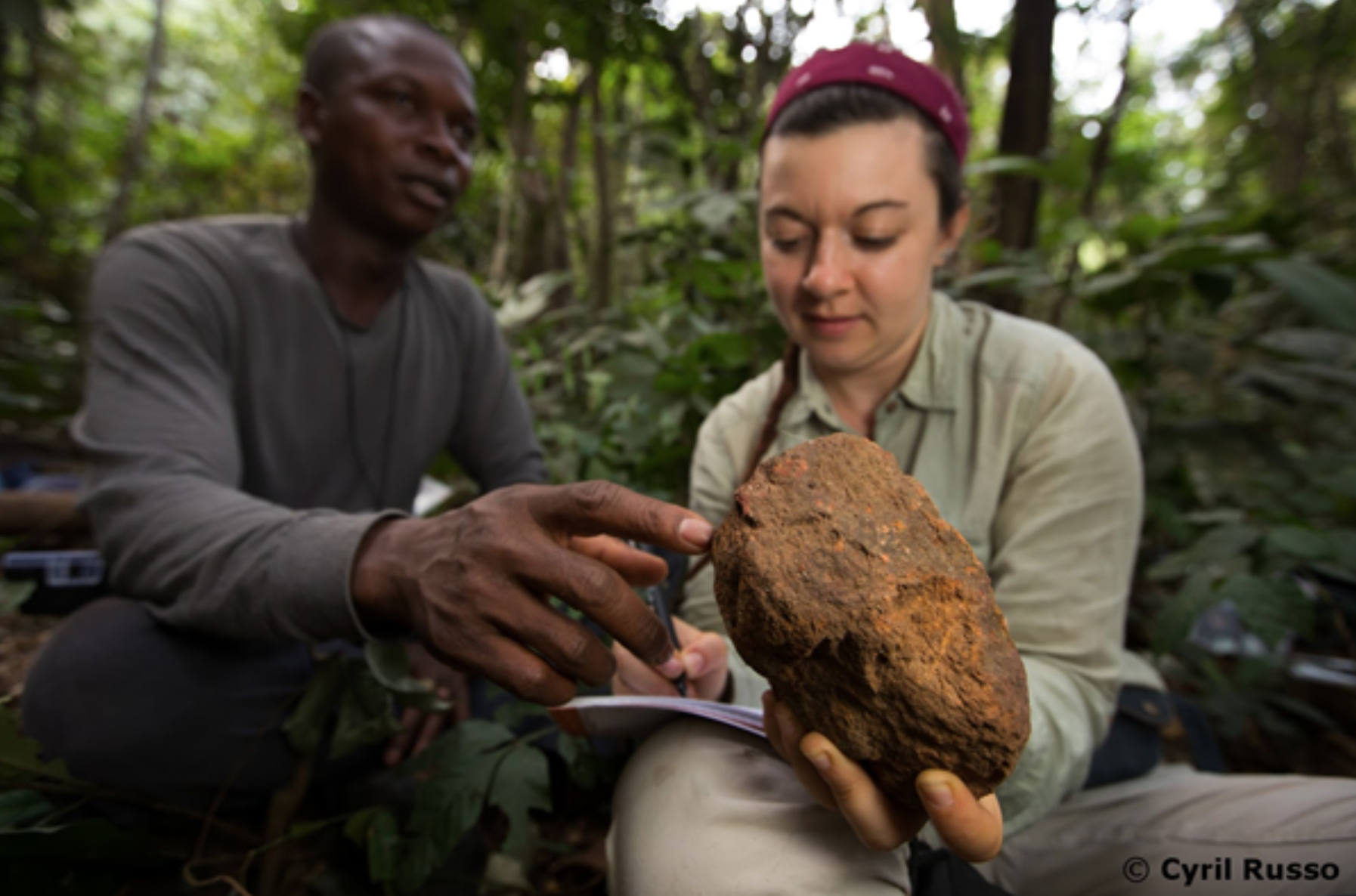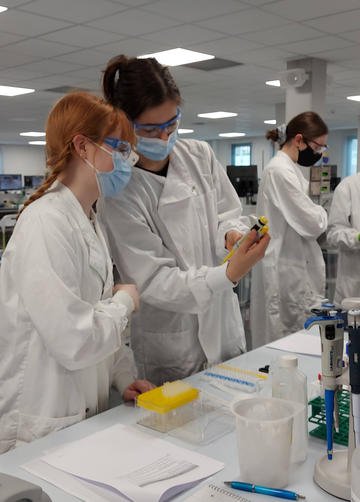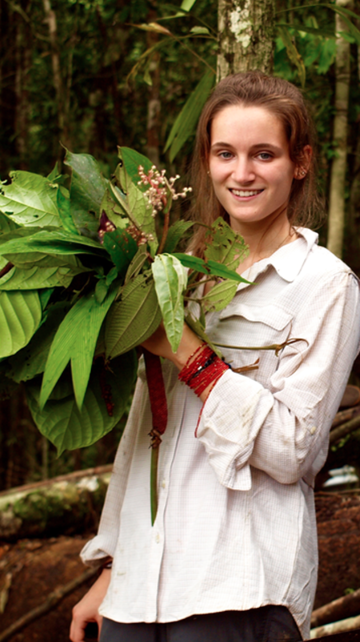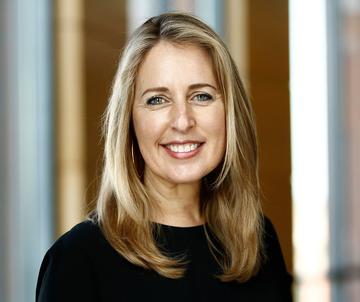Our Vision
Why is Oxford's Human Sciences degree special?
The BA in Human Sciences was created in 1969. Its founders aimed to help students to understand connections among biological, social, and cultural phenomena and thereby to equip them to grapple with the multidimensional complexity of issues confronting human societies. This innovative degree remains one of the most diverse interdisciplinary degrees for undergraduate students in the UK and one of only a handful that offers students deep engagement with approaches across the biological and social sciences.

Studying chimpanzee stone tools in Guinea West Africa
In 2022, Oxford’s Institute of Human Sciences celebrates 50 years of this unique undergraduate degree. This is also an opportunity to look afresh to the future of the degree and to establish it on a strong and sustainable financial footing.

As the climate change crisis and the global response to the COVID-19 pandemic have shown, the need for interdisciplinary training and engagement across the social and biological sciences is even more critical now than 50 years ago. As we look to the next 50 years, it is vital to support the future development of the degree, which still stands as an international exemplar of undergraduate education that equips a new generation to tackle the problems of the 21st century.
To strengthen and sustain the future growth of this degree, and to ensure that it continues to connect relevant interdisciplinary research and teaching with critical issues in a rapidly changing world, we seek to fundraise over the next 36 months. This will help establish the first statutory (endowed) Professorship in Human Sciences, which would provide leadership for the Institute of Human Sciences, both in teaching and research, and for ongoing fund-raising activity. It will further endow two Tutorial Fellowships specifically dedicated to Human Sciences at colleges that currently support the degree, thereby sustaining high-quality teaching and support for students.
The Human Sciences course is an exciting and challenging alternative to more traditional undergraduate pathways. Being a one-of-a-kind at Oxford and the UK generally, it attracts extremely bright, committed and enthusiastic students from all backgrounds. These students have bravely rebuffed the standard forced choice between a science track or a social sciences/humanities track. The course consolidates a huge range of expertise from academics right across the university who are also passionate about interdisciplinary research and teaching. With support for dedicated teaching and leadership roles, we can continue to build on the success of the past 50 years to prepare many more graduates with the skills and knowledge they need to understand and tackle crucial problems faced by global society.
Emma Cohen, Tutor & Director of Studies in Human Sciences at Wadham College
“There is no doubt in my mind that Human Sciences was an extraordinary training, one that opened my mind to new possibilities rather than focusing it on a narrow pathway from which I would then have very limited opportunities to diverge in the future. … To this day, I still refer to my Oxford binders filled with my Human Sciences lecture and tutorial notes. They are sitting on the top shelf of my office. Just by way of example, I am currently writing a paper that takes an evolutionary perspective on knowledge utilization by teams, for which I recently dug out my notes from my courses on evolution; I have another paper that focuses on knowledge withholding by geneticists, for which I consulted my notes on genetics. Human Sciences is a great degree program, I would recommend it to my children (and hopefully it will still be there when the time comes to do so!), as well as to any prospective undergraduate student seeking a fascinating grounding in the fundamental issues of the biological and social sciences that underpin so much of who we are and how we function as individuals and societies. I only wish that more leading universities in the UK had the insight to recognize the value of such a program and support it in their institutions.”
Martine Haas, Lauder Chair and Professor of Management, The Wharton School, University of Pennsylvania

As a teenager, I was not ready to narrow my area of interest to one discipline. I was curious about how things are connected and how deeper study might help to untangle the issues I had begun to be interested in – environmental sustainability, feminism, and how different cultures brought up children. I don’t think I was atypical. We are all naturally curious, but the lack of undergraduate courses that taught anything that was deliberately interdisciplinary meant that most of my contemporaries, even at Oxford, had not even heard about Human Sciences.
I’m so glad that I found the Human Sciences degree. It uniquely enabled me to keep my natural curiosity and interest in complex issues and in how we learn from one another across disciplines.
Rachel Stancliffe, Founder and Director of the Centre for Sustainable Healthcare
Click here to read more about our development priorities and how your donation can help us secure scholarships, academic posts and research which will ensure the future of Human Sciences at the University. Your support at this momentous time in our history will be an investment in future generations of exceptional students and their important contributions to our global society. Please email us if you are interested to find out more (Sarah-Jane White; David Gellner).

Studying botanical specimens in South America

Martine Haas


